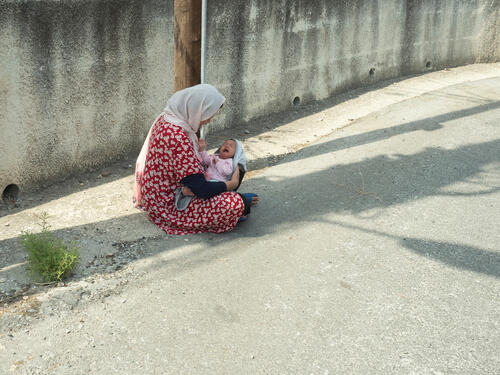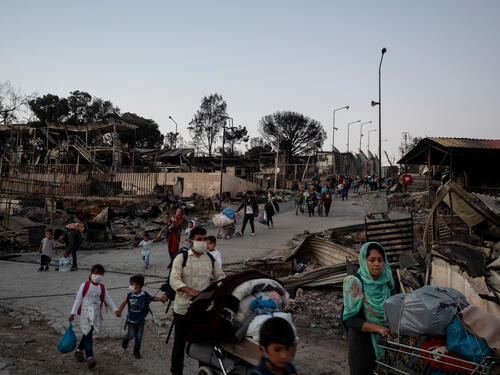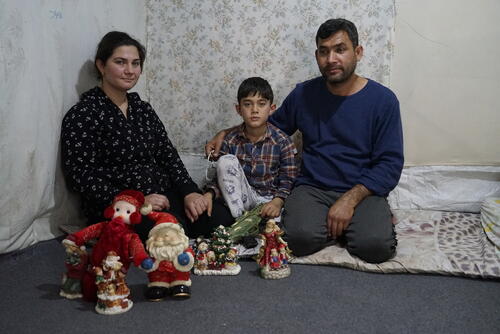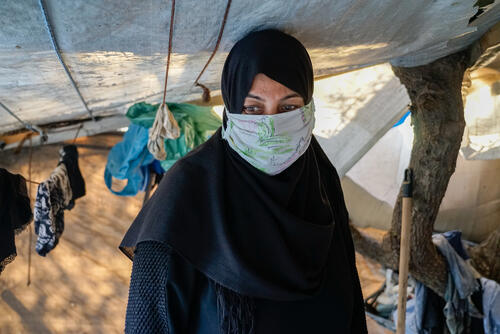Mytiline/Athens/Brussels - One month after the fires that destroyed Moria refugee camp, on the island of Lesbos, Greece, and despite public promises from EU Commissioners that there would be “no more Morias”, more than 7,500 people are still trapped in inhumane conditions in a newly built camp on Lesbos. Thousands more, including 7,000 children, continue to live in other undignified and unsafe camps across the Aegean islands.
Over half a million people have signed petitions that call on European leaders to evacuate the people trapped on the Greek islands, and to end the containment policies that have caused this cycle of suffering and abuse. The European Commission’s new Migration Pact, presented two weeks ago and under discussion at the Justice and Home Affairs Council today, fails to engage with these demands and instead reaffirms European governments’ and institutions’ commitment to the very policies that precipitated the fires.
The new camp on Lesbos is reminiscent of the misery that characterised Moria camp; men, women and children are sleeping in tents on mats, there is no running water, and food is distributed just once daily. Parents wash themselves and their children in the sea, no showers are available, and there are only a limited number of chemical toilets.
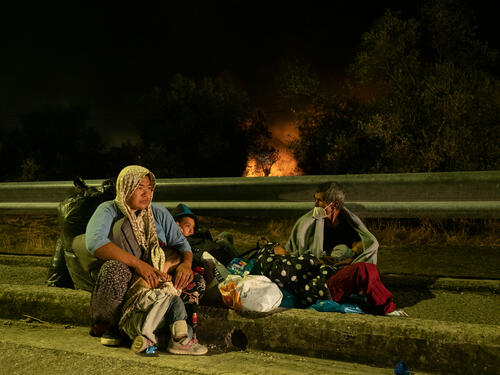
The camp was hastily constructed on a former shooting range next to the sea and is exposed to all elements; winter is approaching, and the camp will not withstand the forthcoming rain and storms. All this is occurring against the backdrop of a COVID-19 outbreak, yet it is impossible for residents of the new camp to take preventive measures such as physical distancing.
Meanwhile, people living in the other EU hotspots on the islands of Samos, Chios, Kos, and Leros are similarly trapped in inhumane and overcrowded conditions. On Kos, new arrivals have been automatically detained since January. On Samos, 4,314 people are living in and around a site built for just 648. There are more than 90 people diagnosed with COVID-19, and yet no adequate medical response plan is in place.
Nothing seems to indicate that the model of containment that created these cyclical emergencies over the past five years has been called into question. The EU’s Migration Pact instead appears to entrench the very policies that have caused years of human suffering across the islands. It mirrors the failed EU hotspot approach on the Aegean islands, expands mandatory border procedures, and is openly geared towards deterrence and return, instead of humane reception and protection.
Enough is enough. We reiterate our call to urgently decongest the islands and bring people to safe and dignified accommodation, with a focus on relocation across Europe. We urge EU leaders to immediately stop the containment of people on the Greek islands, and to abandon the proposals to entrench border facilities across Europe. No more means no more.



